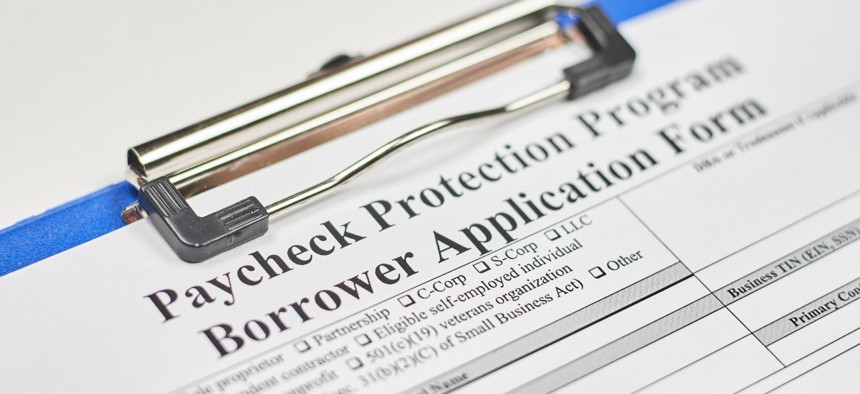
golibtolibov / istock
Union: SBA Is Preventing Temporary Workers from Organizing
Although the Small Business Administration advertised temporary two-year positions processing Paycheck Protection Program loans as belonging to a bargaining unit, the agency stripped the jobs of that status after AFGE inquired about job conditions.
Officials at the nation’s largest federal employee union said that the Small Business Administration is improperly blocking around 80 temporary workers from the opportunity to organize, despite having previously announcing that their positions were eligible for unionization.
Last year, following the passage of the first round of COVID-19 relief legislation, SBA announced that it was hiring GS-12 loan specialists on a temporary basis. The positions, which have been re-advertised several times since April 2020, were for up to two years and eligible to be part of a union bargaining unit.
“This is a bargaining unit position,” the job listing stated.
But when officials at the American Federation of Government Employees inquired about representing the temporary employees, SBA balked, reclassifying the positions as ineligible for union representation. AFGE already represents SBA loan specialists in permanent full-time positions, and AFGE Deputy General Counsel Cathie McQuiston said the current contract expressly allows them to represent temporary hires.
“Sometimes temporary workers who are hired for less than 90 days aren’t included in a bargaining unit, but there’s no language like that in this case,” McQuiston said. “These are loan specialists, and the SBA already employs permanent loan specialists. This is the kind of work they do at SBA all the time . . . But once the union made an inquiry about representing them, the agency suddenly changed their position and said they’re not in the bargaining unit.”
Although the fact that the temporary employees are hired into the excepted service and unable to access the full breadth of protections available to permanent employees, union representation could provide security around issues like scheduling, telework and other working conditions.
AFGE has filed a representation petition with the Federal Labor Relations Authority, which will lead to a hearing before one of the FLRA’s regional directors. McQuiston said that thus far, SBA’s objections seem less designed to win the case before the FLRA, but rather to run out the clock until the employees’ terms expire.
“They’re not excluded from representation by our contract, and the agency hasn’t made that claim,” she said. “They’re basically saying that the nature of the job is so vastly different that they don’t share a commonality with the other employees that we do represent. But that’s really ridiculous, because we have people with the exact same job title doing loan processing . . . I think if we litigate the full way through the process, we have an excellent chance of prevailing, but in the meantime it seems like they’re drawing this out as a legal tactic to deny them the rights and protections available under the union contract.”
AFGE National President Everett Kelley on June 2 sent a letter to SBA Administrator Isabel Guzman urging her to reverse course and recognize the temporary workers’ ability to unionize, citing President Biden’s executive order promoting collective bargaining and her appointment to the White House Task Force on Worker Organizing and Empowerment. Thus far, that letter has gone unanswered.
“There is no legitimate legal basis to deny these employees union representation,” Kelley wrote. “In the private sector, it is a common tactic for employers to use temporary workers and other contracting schemes to circumvent the full union rights workers would have if they were directly employed. It is deeply troubling to see the SBA under the Biden administration resort to a clear union-avoidance tactic used by some of the private sector’s most notorious offenders, like Amazon.”
The SBA declined to comment for this story, citing the pending FLRA representation petition.







